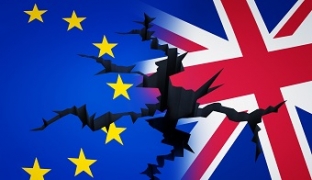Archived article
Please note that tax, investment, pension and ISA rules can change and the information and any views contained in this article may now be inaccurate.

Languishing bottom of the league tables so far this year is the FTSE 100, falling 9% in the first quarter alone. In this piece, our Chief Investment Officer, Kevin Doran, takes a look at the current economic and political situation in the UK and why this has prompted foreign investors to look for more stable places to hold their wealth.
With less than a year until Brexit becomes a reality, we examine whether this is the start of something more serious, and we consider the implications of what would happen if our foreign friends really did go back to their native lands…and took their money with them.
Fortunes not families
Investors reared on the quiet calm and steady gains of equity markets over the past few years were given something of rude reminder of that old adage ‘investments can go down as well as up’ recently, as stock markets globally took a turn for the worse over the first quarter of 2018. With the report cards filed, bottom of the class was our very own FTSE 100, which – in dropping 9% - took the mantle as the worst performing major market out there for folk to have exposure to. We’re told that it was the decline of technology related stocks that acted as the dead weight on markets, but it’s hard to reconcile that with a UK market showing little in the way of hi-tech representation. And so, we must look elsewhere for answers.
Price Index Returns for Major Global Equity Markets Q1 2018

Source: Bloomberg
As ever, when considering all things investment related, it pays to keep an eye on history and, more so these days, politics. And with less than a year until Brexit becomes a reality, it is perhaps unsurprising to see the UK indices lagging against a backdrop where thorny issues such as the Irish border and future trade deals remain far from resolved. Add in the implications of a ‘meaningful vote’ (whatever that means) on the final deal and the remote prospect of a business unfriendly Labour government, it’s a wonder FTSE didn’t manage double-digit declines really.
But that’s only the known unknowns. Lurking underneath the Brexit surface are the unknown effects it could have on the nation’s currency and interest rates.
Collectively, the UK spends more abroad than foreigners spend here in the UK. Whilst that’s most notable in the trade deficit, even when the trade in services and returns on investments held abroad are taken into account, the UK still managed to spend £83bn more abroad than foreigners spent in the UK. Coming hard on the heels of the £114bn deficit we racked up in 2016, it’s clear to see that demand for foreign goods and services is so insatiable that the only way to keep paying off our tab is to resort to the sale of assets instead.
UK Current Account Deficit over last 20 years

Source: Bloomberg
Whether that’s the sale of our football clubs, vast swathes of the West End, properties that lay dormant or, more mundanely, UK Government debt, whilst President Trump would have us believe that a substantial current account deficit puts a nation in a strong negotiating position as the ‘customer’, the flip-side of the coin is that, without the generosity of foreigners to keep on extending credit to us in this way, we will either need to reduce the quantity of things we consume or accept tougher conditions on the deal.
Those conditions could come in many forms. If foreigners decided not to buy UK Government debt, interest rates would need to head higher still, hurting the economy in the process. If, worse still, this triggered the sale of their existing positions (which now exceed £300bn), the Treasury could find itself short of cash, forcing upon the nation further austerity.
If that were not a worrying enough prospect, think of the impact a foreign withdrawal would have on the value of the Pound. Short of the £83 billion or so of foreign investment required to balance the books, Sterling would undoubtedly plummet in scenes reminiscent of the immediate aftermath of the Brexit vote. Requiring the nation to work harder just to stand still, any goods that remain imported would rise in price, whilst those that transferred to UK production would serve only to put pressure on an already stretched jobs market. The result? Unquestionably higher inflation, which in turn would create the need for…yes, you guessed it, higher interest rates.
£ Effective Rate over last 5 years

Source: Bloomberg
And so, as Brexit approaches and the various camps likely increase their hostilities in the pursuit of a final deal, it would pay investors to remember that we live in a global world, with global values and a reliance upon each other previously inconceivable, let alone unheard of. This interdependency has helped forge a prolonged period of peace and a FTSE 100 index where over 80% of earnings are generated on foreign shores. With this in mind, the decline in the FTSE now seem overdone, but for global investors, the message from the UK that foreigners are welcome to bring their fortunes here but not their families is likely to keep them waiting in the wings for now.
Kevin Doran, Chief Investment Officer
Related content
- Wed, 17/04/2024 - 09:52
- Tue, 30/01/2024 - 15:38
- Thu, 11/01/2024 - 14:26
- Thu, 04/01/2024 - 15:13
- Fri, 17/11/2023 - 08:59
